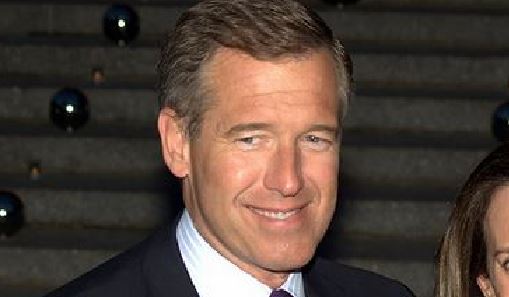The Email Serious Young Professionals Write


Brian Williams rose so high in his career he may have lost what he needed most.
A person to give it to him straight.
By now you probably read NBC News suspended Williams, the network’s managing editor and anchor of “NBC Nightly News,” for six months without pay after it became clear he embellished his reporting from Iraq and Hurricane Katrina.
The Washington Post claims Williams had already grown a reputation inside “30 Rock” for his exaggerated style.
As the top guy in the newsroom, it appears Williams answered only to himself.
[callout]From the article:“There really wasn’t anyone over him to say anything to him or to question his facts,” a former top NBC news manager said.[/callout]
Even the the most successful young professionals need an honest critic. Someone who won’t spare our feelings or sugarcoat where we mess up.
To grow in your career, you must allow others to pick apart your work and offer ways to improve.
If you have an important document, project or presentation, ask someone with a keen eye to look it over or even chop it up in Microsoft Word via Track Changes. Consider the email template below:
The Email Serious Young Professionals Write
Subject line: Would appreciate your review of my [project at hand]
Hi _____,
Formal introduction if you don’t know the person
My name is [your first and last name], and I am a [who you are in context; for instance, “graduate student at _____, aspiring writer or amateur photographer”]. It’s nice to meet you.
Informal introduction if you know the person
[Open with a little small talk like “Hope you’re doing well. How’s the life of a novelist these days? Got any big projects in the works?”The rest of the email — both versions
[Explain how and why you respect the other person; for instance, “I’m a huge fan of your mystery novels and love the work you do.” Then, go one layer deeper and give the person an example of why you like his/her work; for instance, “Your latest book, ‘Into the Stone Grove,’ is such a terrific read, and I recommend it to all my friends.”] [Now get to the “ask”; for instance, “I wrote a short story called ‘Blood Orange Sunrise,’ and I would love your opinion on my style and how the story flows.” Then, explain what you hope to accomplish; for instance, “I am working hard to develop my voice as a short story writer and know I will improve much faster if people I respect give me pointers.”] [To conclude, recognize the person has a busy schedule; for instance, “I know your time is valuable, and I appreciate any help you can offer.”]Thanks so much,
Your first name
Email signature
Deeper Insight
If the person does offer critiques, don’t be defensive. After all, you did ask for the review.
Plus, with the person’s help your work will be much better. Imagine if you had never asked anyone and gone with the original version? Let your guard down.
Have critiques ever made an impact on your career?
Tell your story in the comments!
Featured photo: David Shankbone (Flickr)



Related Articles
May 3, 2018
On Shutting My Mouth, Knowing My Room and Looking Out for #1
Listen and learn.
Read More
July 9, 2013
The NTLB Review: “101 Secrets For Your Twenties” by Paul Angone
Finally, “cheat sheet” for the trickiest decade of our lives.
Read More
February 13, 2014
7-Question Checklist to Make Sure Your Job Application is Valuable
Don’t click “submit.” You’re not finished.
Read More